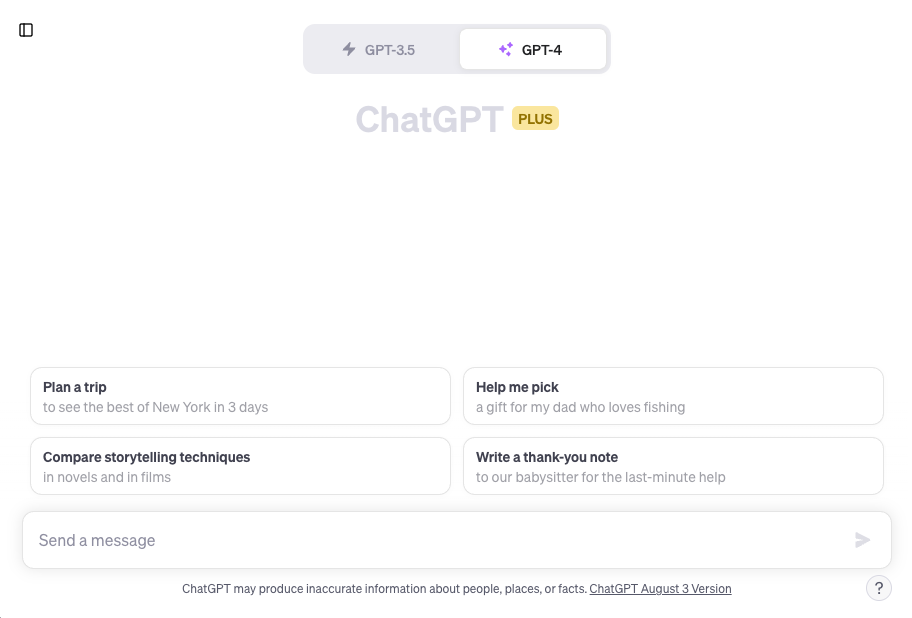During a team discussion did you ever wonder if there is something you are failing to discuss or address? One creative use of AI is to use it for revealing your team's thinking pattern. You might be surprise at the findings if you give it a try.
Upload Your Meeting Notes, Proposals, Etc.
We all have them—those Google Drives or Dropbox folders bursting with past meeting notes, project proposals, emails, and whatnot. But how often do we revisit this "data graveyard"? Rarely, if ever, right? However, in these documents is a hidden treasure trove of goodness.
Using Claude or GPT, feed it a sampling of your meeting notes, memos, and proposals.

It's like when you taught your dog to fetch; you must give something to get something. Loading all of this data will likely give you great insights into your team's thinking patterns.
Note on Privacy - Yes, privacy is a huge issue these days. If you have sensitive data in these topics, remove names or precise values. I worry very little about feeding this to AI, but we are still in the early days, and it's wise to be safe now.
Finding Common Themes, Biases, and Blind Spots
Remember that science experiment back in school where you mixed vinegar and baking soda to create a volcano? This is the fun part of the process: watching the reaction. Once your data is in the system, ask your AI to identify recurring themes, detect biases, and point out blind spots.
For example, give the AI a prompt like:
"I've uploaded a sample of our past meeting notes covering topics from the past year. Please analyze the meeting topics and tell me the top 5 themes you detect. For being a company of X employees, doing Y in yearly revenue, what topics are we not discussing that we should be?"
Just like you would look for patterns in sales data or customer reviews, you can use AI to see if your team leans towards a particular type of solution or if there is a recurring problem that never seems to get solved. Think of it as holding up a mirror to your collective psyche.
There's a reason why therapists and executive coaches like myself often seem so insightful—they're outside observers. It's hard to see the forest for the trees. Yet, by applying AI, you get that outside perspective. I have a client where we used AI analysis on his company's internal communications and discovered that their "culture of urgency" was stressing everyone out and stifling creativity. It was spot on! We are actively working to repair that now.
Applying the Insights
If you're in a leadership role, imagine being able to offer advice that directly addresses your team's biases or blind spots. It's like becoming a corporate superhero who can see things before they happen. As a Scaling Up Coach, I do this for a living, but AI can do it just as well.
For example, if your AI shows that your team often dismisses long-term strategies in favor of quick wins, maybe it's time to reevaluate and aim for a better balance. I coach a rapidly growing company, they have this tendency to focus only on immediate results. Once we saw this pattern, it was easier to steer the ship towards a more balanced and sustainable course.
Continuously Loop This Process
The real value from this process comes when it becomes a part of your corporate culture. Make it a habit to check in with your AI tools and update them with new data. For my clients, we do this quarterly. Just like an athlete who watches tapes of past games to improve, your team can benefit from this ongoing analysis.
AI technology has so much potential beyond just automation and reporting. It can really help us gain meaningful self-knowledge and foster personal growth. For any leader looking to improve team cohesion or align their organization, tapping into AI's ability to analyze thought patterns and behaviors could be transformative.
The exciting thing is that AI keeps developing the more we use it. With more data, the insights get sharper and more accurate. It's like an investment that continuously pays off over time. So why not take a chance on AI and see where it takes your team?
There are always new frontiers to explore. Keep dreaming big!

